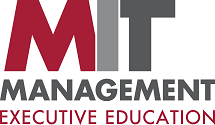The literature indicates that the board of directors exists to provide resources and strategic direction (service task) and monitor top managers (control task), often tending to overgeneralize board tasks. Using a unique sample of 36 elite family firm directors having served on 615 boards with an aggregate 1447 years’ experience, and integrating interview and secondary data with observations, we capture how the multiple role identity struggles experienced by family directors are managed in the board. Our data indicate that effective boards resolve multiple role identity struggles (i.e., family director ‘pathos’) through the mechanisms that boardroom structural forces trigger and the resulting bridge and buffer tasks enacted (i.e., board ‘ethos’), going beyond the traditional service and control tasks.
Introduction
Research centres on the prevailing notion that boards of directors exist to perform service and control tasks (Forbes and Milliken, 1999), implicitly assuming that these two tasks are universally executed by all boards. In this paper, we argue that the situation is more complex and variegated than previously thought (Huse, 2018). Scholars following a behavioural governance approach have begun to recognize the importance of the behaviour of organizational elites, seeing governance as going beyond the mere pursuit and control of individual actions (Westphal and Zajac, 2013), conceiving ‘elite conduct as occurring not in a social vacuum, but rather in a socially situated context and by individuals whose interpretation of the context is itself socially constructed or constituted’ (Westphal and Zajac, 2013, p. 608).
In parallel, a growing body of research stresses that individuals carry multiple, often overlapping, and blurring role identities (Ashforth, 2000). A key challenge for individuals and the groups in which they operate is to manage their multiple role identities (MRIs) (Sundaramurthy and Kreiner, 2008). Research stresses that the MRIs of individuals are important predictors of behaviour (Ramarajan, 2014), acknowledging that this is also true for boards of directors (Golden-Biddle and Rao, 1997; Hillman et al., 2008; Withers et al., 2012). In this vein, research adopting a behavioural approach has examined identity tensions in boards (Golden-Biddle and Rao, 1997), considering the role of management and directors (Garg and Eisenhardt, 2017) and other characteristics linked to identity tensions, such as demographic aspects (Westphal and Milton, 2000), functional background (Tuggle et al., 2010), and leadership positions (McDonald and Westphal, 2011).
However, while the behavioural approach to governance recognizes the importance of understanding directors’ MRIs as shapers of board behaviour (Van Ees et al., 2009; Westphal and Zajac, 2013), much less attention has been paid to directors’ MRI struggles (i.e., when directors hold multiple role identities with divergent meanings and expectations), how such struggles emerge (i.e., become visible in directors’ decision-making approaches), and how they are managed (i.e., how MRI struggles are brought to convergence). This is a pressing issue for at least two reasons. First, because boards of directors are considered the highest authority of firms (He and Huang, 2011) whose effectiveness depends on how directors’ multiple identities are understood and managed (Hillman et al., 2008). Second, as MRI struggles can cause distress and anxiety (Burke and Stets, 2009), understanding how these are managed is important in order to offer concrete suggestions to individuals on how to nurture the creation of an ecology of identities and avoid the negative effects of identity struggles (Ramarajan, 2014).

